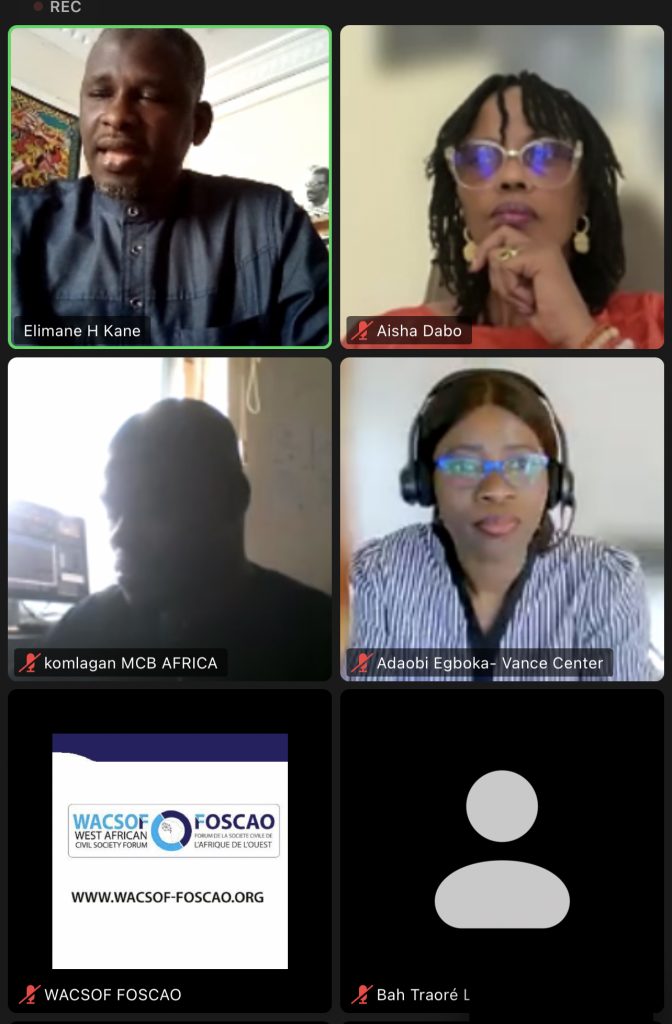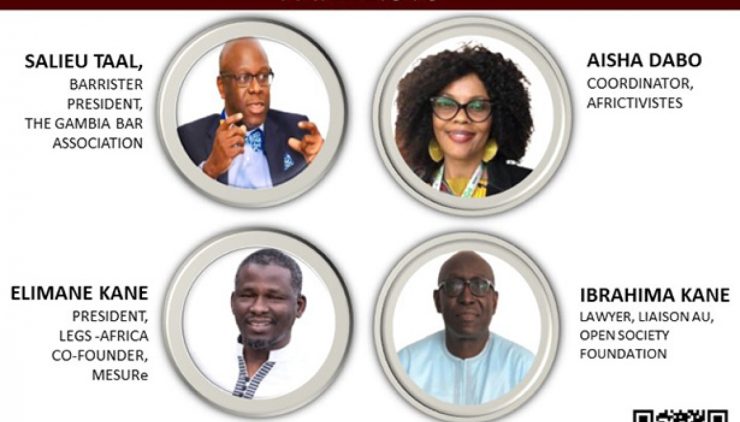On June 27, the Vance Center joined the West African Civil Society Forum (WACSOF) and other partners to host a timely virtual discussion on the political crisis in Senegal.
Participants in the virtual conference. (Image credit: WACSOF)
The conference, entitled “Democracy & Civic Space in West Africa – The Political Crisis in Senegal, Analysis and Solutions – The Role of ECOWAS and AU,” explored the root causes of the ongoing crisis in Senegal, analyzed its impact on Senegal’s society and economy, and highlighted potential solutions.
Vance Center Africa Program Director Adaobi Egboka and WACSOF Executive Director Komlan Messie moderated the event, which featured four panelists.
- Elimane Kane, president of pan-African think tank LEGS-Africa, presented the historical context and factors contributing to the current crisis; examined key events and factors that led to the current situation; and offered an analysis of the political institutions, governance issues, and power dynamics involved.
- Aisha Dabo, co-founder and coordinator of civic tech network AfricTivistes, outlined the national, regional and continental impact of the crisis. She noted the socioeconomic consequences for the Senegalese population and the effect on civic space within the context of a broader decline in democratic governance and rising violent extremism in the region.
- Salieu Taal, president of The Gambia Bar Association, examined the role of the Economic Community of West African States (ECOWAS) and the African Union at the national, regional, and continental levels.
- Ibrahima Kane, head of the Africa Union Advocacy Program of the Open Society Initiative for West Africa and a Senegalese lawyer, offered recommendations for the best way forward for the country.
The panelists called for solidarity from all stakeholders, including ECOWAS, the AU, and traditional and religious leaders in the region. They also called on West African leaders to adopt a proposed amendment to the ECOWAS Protocol on Democracy and Good Governance to improve respect for human rights and the rule of law. The proposed amendment aims to strengthen term limits and ensure that heads of state and presidents do not change their countries’ constitutions to allow them to remain in in office for more than two terms in office or extend their terms.

A screenshot of the conference panelists. (Photo credit: Vance Center)
Senegal has for years been considered one of West Africa’s most stable countries, with three peaceful political transitions since its independence in 1960. However, intensifying government repression ahead of the 2024 presidential election and an accelerating crackdown on human rights – including tighter restrictions on civic space, internet shutdowns, bans on protests, and detention of journalists and opposition figures – have prompted calls from the international community for Senegalese authorities to ensure respect for democratic principles.
In response to growing concerns about the state of democracy in West Africa, the Vance Center and its regional partners last year organized a four-part webinar series to discuss democracy, elections, and governance and the roles of various institutional actors in democratic backsliding and the resurgence of coups in the region.




